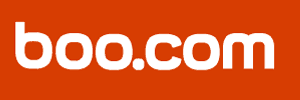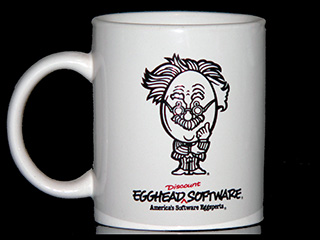 W
WThe dot-com bubble was a stock market bubble caused by excessive speculation of Internet-related companies from 1995 to 2001, a period of massive growth in the use and adoption of the Internet.
 W
WActua Corporation was a venture capital firm. During the dot com bubble, the company had a market capitalization of over $50 billion. The company was originally known as Internet Capital Group, Inc. and changed its name to Actua Corporation in September 2014. In 2018, the company underwent liquidation.
 W
WAlltheWeb was an Internet search engine that made its debut in mid-1999 and was closed in 2011. It grew out of FTP Search, Tor Egge's doctorate thesis at the Norwegian University of Science and Technology, which he started in 1994, which in turn resulted in the formation of Fast Search & Transfer (FAST), established on July 16, 1997.
 W
WAlteon WebSystems, originally known as Alteon Networks, is a division of Radware that produces application delivery controllers.
 W
WAsk.com is a question answering–focused e-business founded in 1996 by Garrett Gruener and David Warthen in Berkeley, California.
 W
WBeenz.com was a website that allowed consumers to earn beenz, a type of online currency, for performing activities such as visiting a web site, shopping online, or logging on through an Internet service provider. The beenz e-currency could then be spent with participating online merchants.
 W
WBlue Coat Systems was a company that provided hardware, software, and services designed for cybersecurity and network management. In 2016, it was acquired by and folded into Symantec.
 W
WBoo.com was a short-lived British eCommerce business, founded in 1998 by Swedes Ernst Malmsten, Kajsa Leander and Patrik Hedelin, who were regarded as sophisticated Internet entrepreneurs in Europe by the investors because they had created an online bookstore named Bokus.com, the third largest book e-retailer, before founding boo.com.
 W
WBooks-A-Million, Inc., also known as BAM!, is a bookstore chain in the United States, operating 260 stores in 32 states. Stores range in size from 4,000 to 30,000 square feet and sell books, magazines, collectibles, toys, technology, and gifts. Most Books-A-Million stores feature "Joe Muggs" cafés, a coffee and espresso bar. Stores operate under the names Books-A-Million, Bookland, Books & Company, and 2nd & Charles.
 W
WThe Canadian Internet Handbook was a series of non-fiction books written by Jim Carroll and Rick Broadhead first published in March 1994 aimed at an audience new to computers, describing the basics of how to use the Internet. Books contained information on what the Internet is, how to get connected, how it works, as well as a directory of internet-based services.
 W
WCDnow, Inc. was a dot-com company that operated an online shopping website selling compact discs and music-related products. In April 1998, during the dot-com bubble, the company was valued at over $1 billion. In July 2000, it was acquired by Bertelsmann Music Group for $117 million; shortly thereafter Amazon was contracted to operate the website. At its peak, it employed over 750 people and had offices in Fort Washington, Pennsylvania, New York City, London, and Los Angeles.
 W
WCobalt Networks was a maker of low-cost Linux-based servers and server appliances. The company had 1,900 end user customers in more than 70 countries.
 W
WDIGEX was one of the first Internet service providers in the United States.
 W
WDigital Insight was a provider of online banking software to banks and credit unions. It also designed FinanceWorks, a product that allowed customers to manage their finances. In 2014, the company was acquired by and folded into NCR Corporation.
 W
We-Dreams is a 2001 American documentary film directed by Wonsuk Chin portraying the rise and fall of Kozmo.com, an online convenience store that used bike messengers to deliver goods ordered online within an hour.
 W
WeGain Corporation is a customer engagement cloud solutions company, traded on the NASDAQ. It is best known for its suite of knowledge-powered software applications, used by omnichannel contact centers, customer service organizations and digital business teams.
 W
WEgghead Software was a computer software retailer. Founded in 1984, it filed bankruptcy in 2001 and its domain name was acquired by Amazon.com.
 W
WeMachines was a brand of economical personal computers. In 2004, it was acquired by Gateway, Inc., which was in turn acquired by Acer Inc. in 2007. The eMachines brand was discontinued in 2013.
 W
WExcite is a web portal launched in 1995 that provides a variety of content including news and weather, a metasearch engine, a web-based email, instant messaging, stock quotes, and a customizable user homepage. It is currently operated by IAC Applications of IAC, and Excite Networks. In the U.S., the main Excite site has long been a personal start page called My Excite. Excite also operates an e-mail service, registration for a new account was not obtainable for a short period but was obtainable again in late 2019.
 W
WFlooz.com was a dot-com venture, now defunct, based in New York City that went online in February 1999. It was promoted by comic actress Whoopi Goldberg in a series of television advertisements. Started by iVillage co-founder Robert Levitan, the company attempted to establish a currency unique to Internet merchants, somewhat similar in concept to airline frequent flier programs or grocery store stamp books. The name "flooz" was based upon the Arabic word for money, فلوس, fuloos. Users accumulated flooz credits either as a promotional bonus given away by some internet businesses or purchased directly from flooz.com which then could be redeemed for merchandise at a variety of participating online stores. Adoption of flooz by both merchants and customers proved limited, and it never established itself as a widely recognized medium of exchange, which hindered both its usefulness and appeal.
 W
WtheGlobe.com was an internet startup founded in 1995 by Cornell students Stephan Paternot and Todd Krizelman. A social networking service, theGlobe.com made headlines by going public on November 13, 1998 and posting the largest first day gain of any IPO in history up to that date. Part of the dot-com bubble, the company's stock price collapsed the next year, and the company retrenched for several years before ceasing operations in 2008.
 W
WGo.com is a portal for Disney content. It was created after The Walt Disney Company acquired the search engine Infoseek. Go.com is currently operated by Disney Parks, Experiences and Products, one of four divisions of the company. It began as a web portal launched by Jeff Gold. Go.com includes content from ABC News, which is owned by Walt Disney Television and is hosted under a .go.com name. Along with Time Warner's Pathfinder.com, Go.com proved to be an expensive failure for its parent company, as web users largely preferred to use search engines to access content directly, rather than using directories. In 2013, the site was transitioned from a general-interest portal to a simple landing page.
 W
WInfoseek was a popular internet search engine founded in 1994 by Steve Kirsch.
 W
WInktomi Corporation was a company that provided software for Internet service providers (ISPs). It was incorporated in Delaware and headquartered in Foster City, California, United States. Customers included Microsoft, HotBot, Amazon.com, eBay, and Walmart.
 W
WKozmo.com was a venture-capital-funded online company that promised free one-hour delivery of "videos, games, dvds, music, mags, books, food, basics & more" and Starbucks coffee in several major cities in the United States. It was founded by young investment bankers Joseph Park and Yong Kang in March 1998 in New York City, and was out of business by April 2001. The company is often referred to as an example of the dot-com bubble. In January 2013, the brand was bought by Yummy.com and announced that they would relaunch soon. In March 2018 Kozmo was relaunched as a warehouse club.
 W
WLycos, Inc., is a web search engine and web portal established in 1994, spun out of Carnegie Mellon University. Lycos also encompasses a network of email, web hosting, social networking, and entertainment websites. The company is based in Waltham, Massachusetts, and is a subsidiary of Kakao.
 W
WMCI, Inc. was a telecommunications company. For a time, it was the second largest long-distance telephone company in the United States, after AT&T. Worldcom grew largely by acquiring other telecommunications companies, including MCI Communications in 1998, and filed bankruptcy in 2002 after an accounting scandal, in which several executives, including CEO Bernard Ebbers, were convicted of a scheme to inflate the company's assets. In January 2006, the company, by now renamed MCI, was acquired by Verizon Communications and was later integrated into Verizon Business.
 W
WPLX Technology was a manufacturer of integrated circuits focused on PCI Express and ethernet technologies. On August 12, 2014, Broadcom Inc., acquired the company.
 W
WStartup.com is a 2001 American documentary film directed by Jehane Noujaim and Chris Hedgedus. D.A. Pennebaker served as a producer on the film. It follows the dot-com start-up govWorks.com, which raised $60 million in funding from Hearst Interactive Media, KKR, the New York Investment Fund, and Sapient.
 W
WSteel Connect, Inc. is a company that provides supply chain management services to software companies. During the dot-com bubble, the company, which was then known as CMGI, had a market capitalization of $41 billion and owned the naming rights to the home stadium of the New England Patriots. Between 1995 and 1999, its stock was the best performing stock in the United States, returning 4,921%. After the crash of the bubble, the stock price fell 99%.
 W
WVerticalnet, Inc. was a host of 43 business-to-business (B2B) procurement portals headquartered in Horsham, Pennsylvania. It was famous for its market capitalization of $10.89 billion on March 10, 2000, during the dot-com bubble, despite sales of only $112.5 million in 2000. Verticalnet was acquired by Bravo Solutions in 2008 for $15.2 million.
 W
WVignette Corporation was a company that offered a suite of content management, web portal, collaboration, document management, and records management software. Targeted at the enterprise market, Vignette offered products under the name StoryServer that allowed non-technical users to create, edit and track content through workflows and publish it on the web. It provided integration for enterprise resource planning, customer relationship management and legacy systems, supporting Java EE and Microsoft.NET. Vignette's integrated development environment and application programming interface offered an alternative to conventional Common Gateway Interface/vi/Perl web development. StoryServer was used on many large websites including those of CNET, UnitedHealth Group, The Walt Disney Company, Wachovia, Martha Stewart, Fox News, National Geographic Channel, MetLife, BSkyB, the 2004 Summer Olympics, and NASA.
 W
WWebvan was a dot-com company and grocery business that filed for bankruptcy in 2001 after 3 years of operation. It was headquartered in Foster City, California, United States. It delivered products to customers' homes within a 30-minute window of their choosing. At its peak, it offered service in ten US markets: the San Francisco Bay Area; Dallas; Sacramento; San Diego; Los Angeles; Orange County, California; Chicago; Seattle; Portland, Oregon; and Atlanta, Georgia. The company had hoped to expand to 26 cities by 2001.